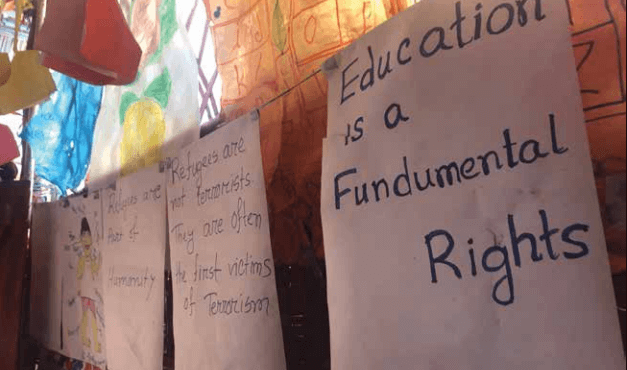On 3 December 2019, Human Rights Watch published a report entitled “Are We Not Human?” which analyses the Bangladeshi government’s policy to deny education for over 400,000 Rohingya refugee children.
The report urges the Bangladeshi government to end its policy providing for the deliberate deprivation of education of Rohingya refugees. The government’s assertion that refugees will be returned to Myanmar within two years of arrival has resulted in restricted access to formal education and increased use of barriers to social integration, such as restrictions to movement and the denial of citizenship. Moreover, humanitarian groups have been prohibited from constructing permanent school facilities, with only small scale temporary learning centres used instead.
The report notes that the policy fails to adhere to a number of international legal standards including those outlined by the Committee on the Rights of the Child and Committee on the Rights of Migrant Workers which state that all children should have access to education at an equal level as nationals of the country in which they reside.
A number of recommendations are presented to the Bangladeshi government, UNICEF and the humanitarian aid sector, as well as international donors to the Rohingya refugee response. The recommendations include: lift restrictions violating the right to education without discrimination; allow refugee students to enrol in schools outside the camps; ensure better security for refugee women and girls, with a particular focus on sexual and gender based violence; and disseminate information on formal education planning.
For further information:
- ECRE, Rohingya Students Expelled from School in Bangladesh, April 2019
- ECRE, Rohingya won’t return to Myanmar any time soon, according to UN Special Rapporteur, July 2018
- ECRE, International Concern over the Relocation of Rohingya Refugees to a Remote Island, March 2019
Photo: HRW
This article appeared in the ECRE Weekly Bulletin . You can subscribe to the Weekly Bulletin here.

